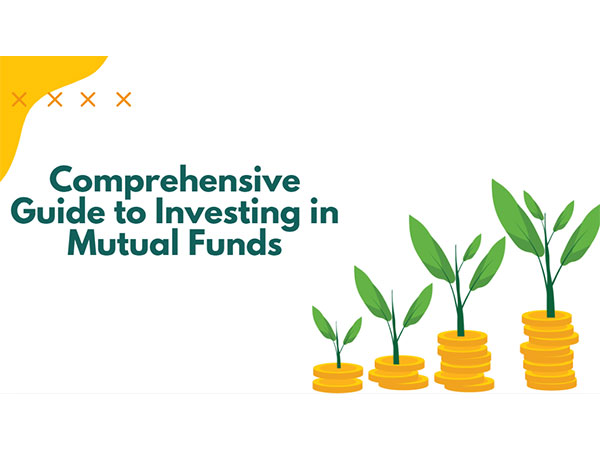VMPL
New Delhi [India], June 7: Investing in mutual funds may be a preferable way of building wealth over time for various investors in India. This is because they provide a structured approach to investment that is managed by professional fund managers. If you are new to investing or looking to diversify your portfolio, learning about mutual funds may be the right starting point. This article provides an overview of mutual fund investing while explaining its types, benefits and costs involved.
What is a Mutual Fund?
A mutual fund collects funds from a number of investors and invests them in various assets such as stocks, bonds, or other securities. A professional asset management company manages the fund. The aim is to diversify your investment in multiple instruments, which might reduce the potential risk to some extent.
If you invest in a mutual fund, you purchase units of the fund. Each unit’s value is referred to as the Net Asset Value (NAV). This NAV fluctuates based on the performance of underlying assets.
Types of Mutual Funds in India
Mutual funds are divided into various categories according to investment objectives, asset class, and structure. Every category is designed to meet various financial requirements. Understanding these types may assist you in selecting the right fund.
Based on Asset Class:
-Equity Funds: Primarily invest in stocks of listed companies.
– Debt Funds: Invest in fixed income assets such as government securities or bonds.
-Hybrid Funds: Mix equity and debt in different proportions.
Based on Investment Objective:
-Growth Funds: Focus on growth over time.
-Income Funds: Emphasis on providing a stream of regular income.
-Liquid Funds: Invest in short-term vehicles to provide immediate liquidity.
Based on Structure:
-Open-Ended Funds: Investors can buy or sell units of the funds any time.
-Close-Ended Funds: Units of this fund can be bought only within a predetermined offer period.
Advantages of Mutual Fund Investing
Mutual funds provide several practical advantages. Some of these are as follows:
-Diversification: Your capital is invested across different asset classes, which might allow you to minimise the potential risk associated with a single asset class.
-Professional Management: Professional fund managers handle buying, selling, and asset allocation.
-Accessibility: You can start with small sums, which makes it suitable for individuals of all income groups.
-Liquidity: Units in most open-ended schemes can be redeemed on any business day.
However, mutual fund investments carry possible risks associated with market volatility. Past performance must not be taken as an indication of future performance.
Costs Involved
Investing in mutual funds attracts charges. These may be as follows.
-Expense Ratio: A share of the fund assets, levied every year for management and operational costs.
-Exit Load: A charge that you pay if you redeem your units in a particular time frame.
Be sure to review these charges before finalising your investments. This is because these charges can affect overall potential returns in the long term.
Taxation of Mutual Funds
Taxability depends on the nature of the online SIP mutual fund and the duration of holding. However, the basic format is as follows.
Equity Funds:
-Short-term gains (less than 12 months) are subject to a 20% tax.
-Long-term returns (over 12 months) are taxed at 12.5% post Union Budget 2024.
Debt Funds:
-Charged according to your income tax bracket if you hold them for under three years.
-Long-term gains are charged at 12.5% post-Union Budget 2024.
Understanding the effect of tax on your investments can help you plan and avoid unexpected tax deductions.
Things to Keep in Mind Before Investing in Mutual Funds
Investing in mutual funds is a long-term commitment. Here are some of the things to keep in mind.
-Avoid shifting between funds too often unless you have a considerable reason.
-Investment in a fund should not be considered based on its short-term performance.
-Go through mutual fund fact sheets, and utilise tools such as online mutual fund calculators and comparison websites to make informed decisions.
Being consistent and well informed may help you manage your mutual fund investments effectively.
Conclusion
Investing in mutual funds is an easy and practical means to be a part of the financial markets. Whether you are looking to create wealth in the long term or fulfil short-term financial needs, mutual funds provide solutions for all sorts of investors. By knowing the fundamentals, understanding related costs, and having realistic expectations, you can use mutual funds as a tool for disciplined financial planning. Keep revisiting your goals from time to time and seek advice from a financial expert if you require assistance in selecting funds.
(ADVERTORIAL DISCLAIMER: The above press release has been provided by VMPL. ANI will not be responsible in any way for the content of the same)
Disclaimer: This story is auto-generated from a syndicated feed of ANI; only the image & headline may have been reworked by News Services Division of World News Network Inc Ltd and Palghar News and Pune News and World News
HINDI, MARATHI, GUJARATI, TAMIL, TELUGU, BENGALI, KANNADA, ORIYA, PUNJABI, URDU, MALAYALAM
For more details and packages















